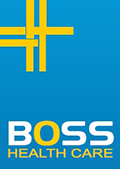Medicare payment to ESRD facilities for outpatient maintenance dialysis services furnished to Medicare beneficiaries with End-Stage Renal Disease (ESRD) is based on a prospective payment system known as the basic case-mix adjusted composite payment system. The base composite rate covers the costs of the dialysis treatment and certain routine drugs, laboratory tests, and supplies furnished at home or in a facility. Separately billable services represent about 40 percent of total Medicare payments per dialysis treatment. The base composite rate is adjusted by a drug add-on payment to account for changes in the drug pricing methodology that occurred in 2005 and by case-mix factors, that is, age, body size, and a special adjustment for pediatric patients.
TMedicare Improvements for Patients and Providers Act (MIPPA) replaces the current basic case-mix adjusted composite payment system with a bundled ESRD prospective payment system, or the ESRD PPS, for Medicare outpatient ESRD facilities beginning January 1, 2011. There will be a 4-year transition period, with full implementation beginning January 1, 2014. ESRD facilities may make a one-time election to be excluded from the transition and accept payment entirely based on the payment amount under the ESRD PPS. During the transition, ESRD facilities will be paid a blend of the ESRD PPS and the current payment system (which is described in detail below).
Basic Case-Mix Adjusted Composite Payment System
The basic case-mix adjusted composite payment system is a comprehensive prospective payment system that covers a bundle of dialysis related items and services routinely required for dialysis treatments to be furnished to Medicare beneficiaries in Medicare-certified ESRD facilities or at their home. For example, those items and services include supplies and equipment used to administer dialysis in the ESRD facility or at a patient’s home, drugs, biological, laboratory tests, and support services. Payment for all modalities of in-facility dialysis and Method I home dialysis are paid under the basic case-mix adjusted composite payment rate system. Payment for Method II home dialysis is not paid under the basic case-mix adjusted composite payment system and is described in detail below.
The following components are not paid under the basic case-mix adjusted composite payment system:
- Method II home patients;
- Physician’s professional services;
- Separately billable laboratory services;
- Separately billable drugs;
- Blood and blood products; and
- Bad debt.
Beneficiaries may either receive maintenance dialysis at a Medicare-certified dialysis facility or at home. Each Medicare home dialysis beneficiary must choose the method by which Medicare pays for his or her dialysis services.
Under Method I, the dialysis facility with which the patient is associated must assume responsibility for providing all home dialysis equipment and supplies, and home support services. For these services, the facility receives the same payment rate as it would receive for an in-facility patient under the basic case-mix adjusted composite payment system. Under this arrangement, the ESRD facility bills the Fiscal Intermediary/Medicare Administrative Contractor (FI/MAC), and the beneficiary is responsible for paying unmet Part B deductible and the 20 percent coinsurance requirement to the ESRD facility.
SEPARATELY BILLABLE ITEMS AND SERVICES
In addition to the composite rate, dialysis facilities may receive additional payment for separately billable laboratory tests and drugs.
Separately Billable Laboratory Tests
Separately billable laboratory tests are paid according to the Clinical Diagnostic Laboratory Fee Schedule. Laboratory tests that are usually performed for dialysis patients and are routinely covered at the frequency specified in the absence of indications to the contrary, that is, no documentation of medical necessity is required other than knowledge of the patient’s status as an ESRD beneficiary. When any of these tests is performed at a frequency greater than that specified, the additional tests are separately billable and are covered only if they are medically justified by accompanying documentation. A diagnosis of ESRD alone is not sufficient medical evidence to warrant coverage of the additional tests. The nature of the illness or injury (diagnosis, complaint, or symptom) requiring the performance of the test(s) must be present on the claim. Such information must be furnished using the ICD-9-CM coding system Medicare beneficiaries do not pay a copay-ment for separately billable laboratory tests.
Separately Billable Drugs
Some drugs administered in the facility by facility staff are not covered under the composite rate but may be medically necessary for some beneficiaries who receive dialysis. These drugs must be billed separately and accompanied by medical justification either through information on the claim form or as requested by the FI/MAC. Staff time used to administer the drugs is covered under the composite rate. Supplies used to administer the drugs may be billed in addition to the composite rate. Hospital-based facilities and independent ESRD facilities are paid the Average Sales Price of drugs plus six percent for separately billable drugs. Medicare beneficiaries pay a 20 percent copay¬ment for separately billable drugs.
